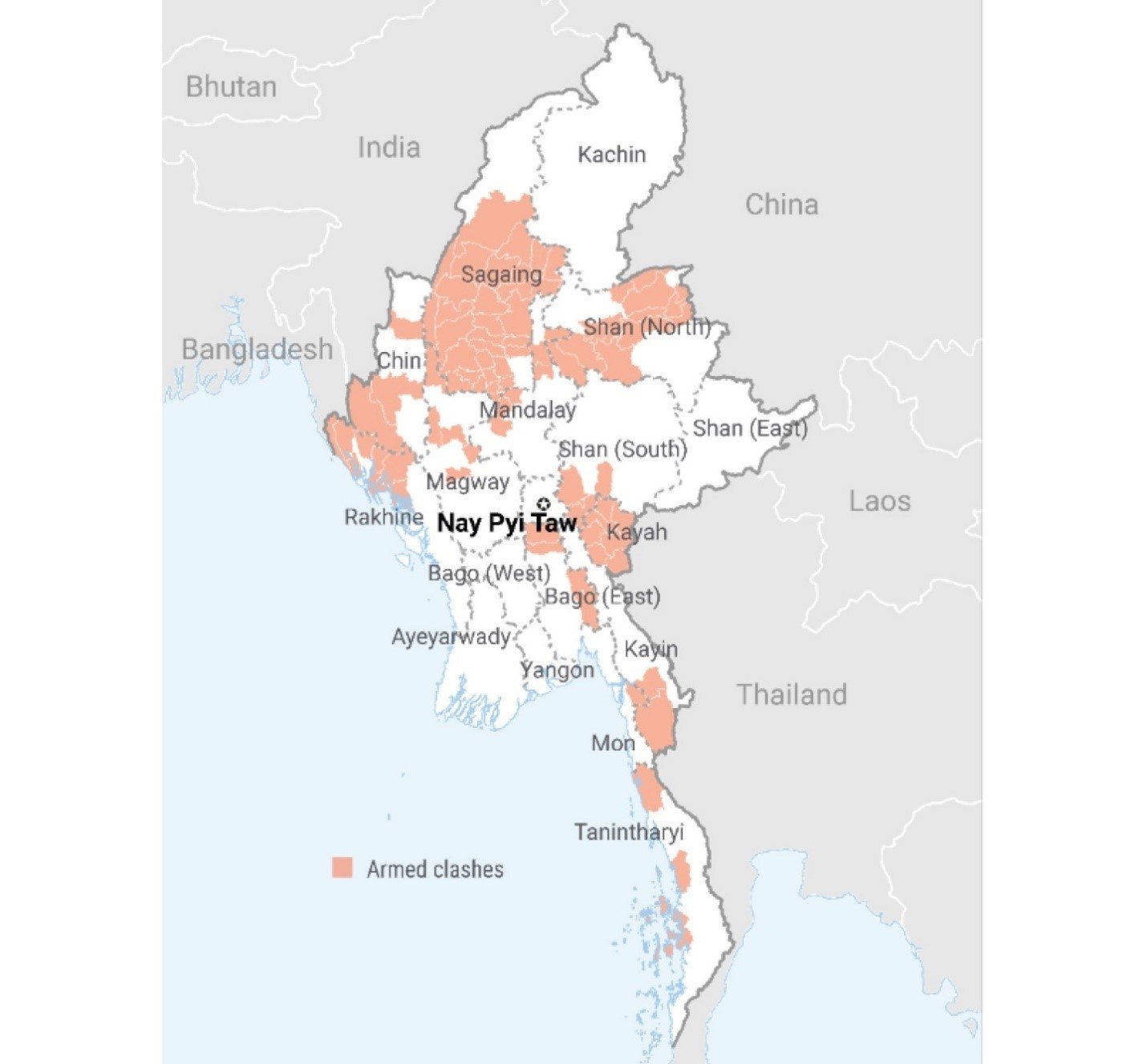The UN Office for Coordination of Humanitarian Affairs (OCHA) has stated in a report that 5,78,000 people in Myanmar have been displaced since 26th October 2023. However, the UN agency also said that the numbers could not be confirmed “due to returns and redisplacement, while communication challenges are making numbers difficult to verify.” The latest displacements add to some two million people displaced since the junta usurped the democratically elected government in February 2021.
OCHA also that 363 civilians, including women, and children, have reportedly been killed and a further 461 injured over the last six weeks as fighting between the Myanmar Armed Forces (MAF) and various groups, including Ethnic Armed Organizations (EAOs) and People’s Defence Forces (PDFs), continues in about two-thirds of the country.
Intense clashes have been reported in many townships across northern and southern Shan, Rakhine and Chin, Sagaing, Magway, Kayah, eastern Bago and Kayin in early December, causing further humanitarian needs and challenges, OCHA said.
“Ongoing armed clashes, airstrikes, landmines, arbitrary arrests and roadblocks are rapidly increasing protection risks for civilians and are severely restricting the movement of essential goods, as well as people seeking places of safety,” the Office said. “Telecommunications blackouts in many conflict-affected areas are also making verification more challenging,” it added.
According to OCHA, food, shelter, hygiene, basic health and protection, are the most pressing needs across conflict-affected areas.
Faith-based organizations and local responders, in collaboration with aid agencies, continue to provide critical and lifesaving assistance to displaced and affected communities wherever access is possible.
Against this backdrop, the UN Central Emergency Response Fund (CERF) on 5th December approved an emergency $7 million allocation to provide lifesaving aid to people most affected by the violence. However, more support is urgently needed to enable humanitarians respond effectively and at scale to the escalating needs, the United Nations stated.


